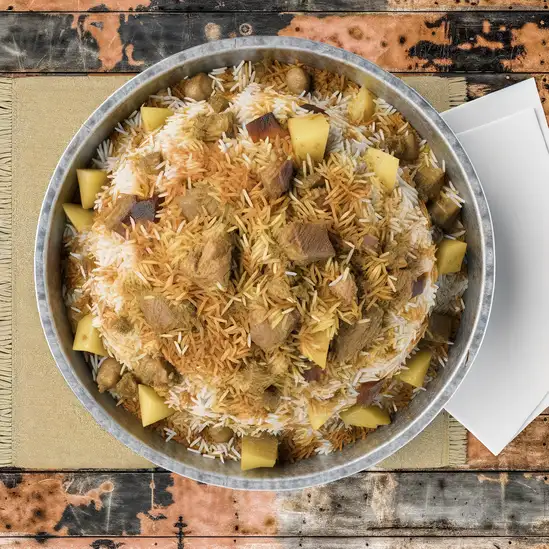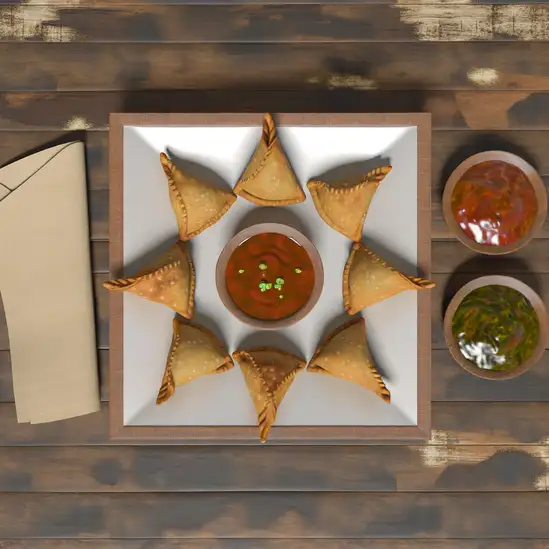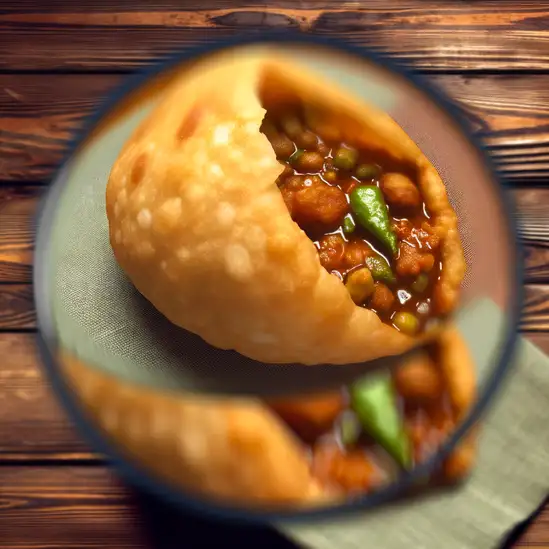



If you ever find yourself dreaming of a place where the ocean breeze carries the scent of spices and salt,Mombasa is that kind of city. It’s a vibrant,sun-soaked coastal town where the rhythm of life feels both laid-back and alive. Walking through its streets,you’ll hear the melodic call to prayer blending with the chatter of Swahili traders and the distant crash of waves against coral reefs. The city’s heartbeat is unmistakably tied to the sea,with colorful dhows bobbing gently in the harbor and fishermen hauling in their catch at dawn. Mombasa’s character is a beautiful tapestry woven from centuries of history and culture. The old town,with its narrow alleys and intricately carved wooden doors,invites you to get lost in stories of Arab traders,Portuguese explorers,and local Swahili traditions. The aroma of freshly grilled seafood mingles with the sweet,warm scent of cardamom and cloves from nearby markets,tempting you to try dishes like pilau or samosas bursting with flavor. What makes Mombasa truly special is its effortless blend of old and new,calm and chaos. You can lounge on white sandy beaches under swaying palms one moment,then dive into bustling markets or lively street festivals the next. It’s a place where every sunset feels like a celebration,painting the sky in fiery hues and promising more adventures tomorrow. Trust me,Mombasa isn’t just a destination—it’s a feeling you’ll want to carry with you long after you leave.
The information on this page is currently being reviewed by Tripkliq and should be used as a guide only
Eng word: Hello
Eng pronunciation: Ha-bah-ree
Local language: Habari
Eng word: Goodbye
Eng pronunciation: Kwa-heh-ree
Local language: Kwaheri
Eng word: Thank you
Eng pronunciation: Ah-sahn-teh
Local language: Asante
Eng word: How much
Eng pronunciation: Bay gah-nee
Local language: Bei gani
Eng word: Toilet
Eng pronunciation: Choh
Local language: Choo
Eng word: Help me
Eng pronunciation: Nee-sigh-dee-eh
Local language: Nisaidie
Eng word: Yes
Eng pronunciation: N-dee-yoh
Local language: Ndiyo
Eng word: No
Eng pronunciation: Ha-pah-nah
Local language: Hapana
Eng word: Excuse me
Eng pronunciation: Sah-mah-hah-nee
Local language: Samahani
Mombasa was under British colonial rule for nearly 90 years, from 1887 to 1963.
Mombasa was under Portuguese rule from 1505 to 1631, making it an important trading hub in East Africa.
Mombasa is a melting pot of Swahili, Arabic, and European cultures, influencing its unique traditions and cuisine.
Fort Jesus, a UNESCO World Heritage Site in Mombasa, was built by the Portuguese in 1593 to protect their trade interests.
Mombasa played a significant role in the Arab slave trade, with thousands of slaves passing through the city en route to the Middle East.
The Mombasa-Nairobi Railway, also known as the Lunatic Express, was built by the British in the late 19th century to connect the coast with the interior.
Mombasa was a center of anti-colonial resistance during Kenya's struggle for independence in the 1950s and 1960s.
Mombasa is known for its ancient pillar tombs, which date back to the Swahili civilization of the 14th century.
Mombasa's architecture, cuisine, and language bear the influence of Arab traders who settled in the city centuries ago.
In Mombasa, the most common Power Adaptor is Type G.


A fragrant rice dish cooked with spices, marinated meat (usually chicken or goat), and sometimes seafood, often garnished with fried onions and boiled eggs.

A popular snack consisting of a crispy pastry filled with spiced potatoes, peas, or meat, often served with a tangy dipping sauce.

A deep-fried pastry filled with a spicy mixture of lentils or peas, commonly enjoyed as a snack or appetizer.

Grilled meat, typically goat or beef, served with a side of ugali (maize porridge) and kachumbari (a fresh tomato and onion salad).

A soft, unleavened flatbread that is often served as an accompaniment to various dishes, especially curries and stews.

A traditional Swahili dish made from a mixture of rice, beans, and coconut milk, often served with a side of vegetables or meat.

A spicy sauce made from chili peppers, garlic, and other spices, often used as a condiment for grilled meats and seafood.

A flavorful curry made with fresh fish cooked in a rich coconut milk sauce, seasoned with spices and served with rice.
Zanzibar City,located on the island of Unguja,is famous for its pristine beaches,turquoise waters,and the historic Stone Town,a UNESCO World Heritage Site. It's a perfect destination for island lovers and cultural enthusiasts.
ExploreMalindi has this effortlessly laid-back vibe that instantly wraps around you like a warm,salty breeze. Imagine waking up to the gentle crash of turquoise waves against white sandy beaches,the air tinged with the sweet scent of frangipani and the distant chatter of fishermen preparing their boats. It’s a place where time slows down just enough for you to savor every moment—whether you’re wandering through the colorful local markets,where the vibrant fabrics and fresh spices create a feast for the senses,or sipping on freshly brewed Kenyan coffee while watching the sun paint the sky in shades of coral and gold.
What really makes Malindi special is its rich blend of cultures and history. You’ll find echoes of ancient Swahili traders in the coral stone ruins,alongside the lively rhythms of modern-day life. The people here are warm and welcoming,always ready to share stories or invite you to try a plate of freshly grilled seafood,bursting with flavors of coconut and chili. The town pulses with a genuine,unpretentious energy that feels both exotic and familiar.
Whether you’re exploring the nearby marine parks,snorkeling among vibrant coral reefs,or simply lounging under a palm tree with the ocean breeze on your skin,Malindi invites you to slow down and soak it all in. It’s a place that stays with you long after you leave,whispering promises of sun-drenched days and star-filled nights.
Dar es Salaam pulses with a vibrant energy that instantly wraps around you like a warm,familiar hug. It’s a city where the salty breeze from the Indian Ocean mingles with the rich aroma of street-side spices and freshly grilled seafood,creating an intoxicating sensory cocktail. Walking through its bustling markets,you’ll hear the lively chatter of vendors,the rhythmic beat of taarab music drifting from nearby cafes,and the occasional call of fishermen bringing in their catch. There’s a raw,unpolished charm here—far from the polished tourist spots—that makes every corner feel alive and authentic.
The city’s character is a beautiful blend of cultures,from the Swahili influences visible in the coral stone architecture to the colorful fabrics and crafts that spill out of shops and stalls. You can taste this fusion in the food too—imagine biting into a perfectly spiced mishkaki skewer or savoring a plate of ugali with fresh fish,all while watching the sun dip below the horizon,painting the sky in fiery oranges and pinks.
What makes Dar es Salaam truly special is its people—their warmth,resilience,and infectious smiles. Whether you’re sharing a laugh with a local artisan or joining a lively street dance,you’ll feel a genuine connection that stays with you long after you leave. It’s a city that invites you to slow down,soak in its rhythms,and discover stories woven into every street and wave.
If you ever find yourself wandering through Victoria,the capital of Seychelles,you’ll immediately notice its laid-back charm mixed with a vibrant pulse that feels both intimate and alive. It’s not a sprawling metropolis but a cozy town where the ocean breeze carries the scent of salt and tropical flowers,and the chatter of Creole,English,and French blends into a warm,welcoming hum. Walking through the colorful streets,you’ll catch glimpses of bustling markets where fresh spices,exotic fruits,and fragrant vanilla pods fill the air,inviting you to taste the island’s rich flavors.
Victoria’s character is a beautiful blend of cultures,reflected in its colonial architecture,lively street art,and the friendly smiles of locals who are always ready to share a story or recommend their favorite spot. The city feels like a crossroads of history and nature,with the iconic clock tower standing proudly as a reminder of its past,while just a short stroll away,the lush Botanical Gardens offer a peaceful escape filled with giant tortoises and vibrant tropical plants.
What really makes Victoria special is how it balances the simplicity of island life with a genuine sense of community and culture. Whether you’re sipping a freshly brewed Seychellois tea at a café,listening to the distant rhythm of sega music,or watching fishermen haul in their catch at the harbor,there’s a comforting rhythm here that invites you to slow down,breathe deeply,and soak in the moment. It’s a place that stays with you long after you leave.
If you find yourself wandering through Port Louis,you’ll immediately notice its vibrant pulse—a lively mix of old-world charm and bustling modern life that feels both warm and inviting. The city hums with energy,from the colorful stalls of the Central Market where spices,fresh tropical fruits,and fragrant street food scents mingle in the air,to the chatter of locals bargaining and sharing stories. It’s a place where the past and present dance together,with colonial architecture standing shoulder to shoulder with sleek skyscrapers.
Walking along the waterfront,the salty breeze carries the distant calls of fishermen and the gentle clinking of boats bobbing in the harbor. The streets are alive with a blend of cultures—Creole,Indian,Chinese,and French influences swirl through the food,music,and festivals. You can’t help but be drawn into the rhythm of sega music playing softly from a nearby café or the rich aroma of dholl puri being freshly made on a street corner.
Port Louis isn’t just a city; it’s a sensory experience. The vibrant colors of the market,the warmth of the people,and the tantalizing tastes of local dishes like octopus curry or gateau piment make it unforgettable. It’s a place where every corner tells a story,and every moment feels like an invitation to explore deeper. Trust me,once you’ve soaked in its unique spirit,you’ll carry a piece of Port Louis with you long after you leave.
Imagine stepping into a place where time slows down,and the salty breeze carries whispers of ancient tales—that’s Lamu for you. This small island off Kenya’s coast feels like a living postcard,with narrow winding streets where donkeys clatter over worn stone,and the scent of frankincense mingles with the ocean air. There’s a gentle rhythm here,a calmness that wraps around you as you wander past coral-stone houses with intricately carved wooden doors,each telling stories of centuries-old Swahili culture.
The mornings are magical—fishermen push their dhows into the turquoise waters,their sails catching the sun’s first light,while the call to prayer echoes softly from the mosque minarets. You’ll hear the chatter of locals bartering in the market,the laughter of children playing by the shore,and the distant hum of taarab music drifting from a nearby café. Taste fresh seafood grilled over open flames,paired with sweet,spiced chai that warms you from the inside out.
What makes Lamu truly special is its blend of history and hospitality. The island’s pace invites you to slow down,to savor moments rather than rush through them. Here,every corner feels alive with culture—from the vibrant festivals to the artful dhow-building yards. It’s a place where you don’t just visit; you become part of a story that’s been unfolding for centuries,leaving you with a deep sense of connection long after you’ve left.
Scammers install skimming devices on ATMs to steal card information from unsuspecting tourists.
Local beach vendors, known as 'beach boys,' may aggressively sell overpriced souvenirs, tours, or services to tourists, sometimes using high-pressure tactics.
Some money changers may use fake rates or shortchange tourists during currency exchanges.
Scammers approach tourists claiming to represent a charity or cause, asking for donations that never reach the intended recipients.
Imposters posing as police officers may stop tourists, accuse them of minor infractions, and demand bribes to let them go.
Scammers sell fake or non-existent safari packages to tourists, taking payment upfront and disappearing.
Scammers pose as tour guides and offer to show tourists around, but they may overcharge or provide subpar services.
Some restaurants or vendors near the beach may overcharge tourists for seafood, often adding hidden fees or inflated prices.
Tourists in crowded areas or markets may fall victim to pickpocketing or bag snatching by opportunistic thieves.
Tuk-tuk drivers may inflate prices for tourists, especially if the fare is not agreed upon in advance.
The use, possession, and trafficking of illegal drugs are strictly prohibited in Mombasa, Kenya. The country has stringent drug laws, and violations can result in severe penalties, including long prison sentences and heavy fines. Tourists should avoid any involvement with illegal drugs to avoid legal trouble.
In Mombasa, Kenya, smoking is regulated under the Tobacco Control Act. Smoking is prohibited in public places such as restaurants, bars, public transport, and workplaces. Designated smoking areas are provided in some establishments, but they must comply with specific regulations. Violations can result in fines or other penalties.
Vaping is subject to similar regulations as smoking in Mombasa. The use of e-cigarettes is prohibited in public places where smoking is banned. Tourists should be cautious and use designated smoking areas if they need to vape. The sale and advertisement of vaping products are also regulated.
What are other people saying about Mombasa?
Recent Social posts about Mombasa
There is nothing to show you for now.